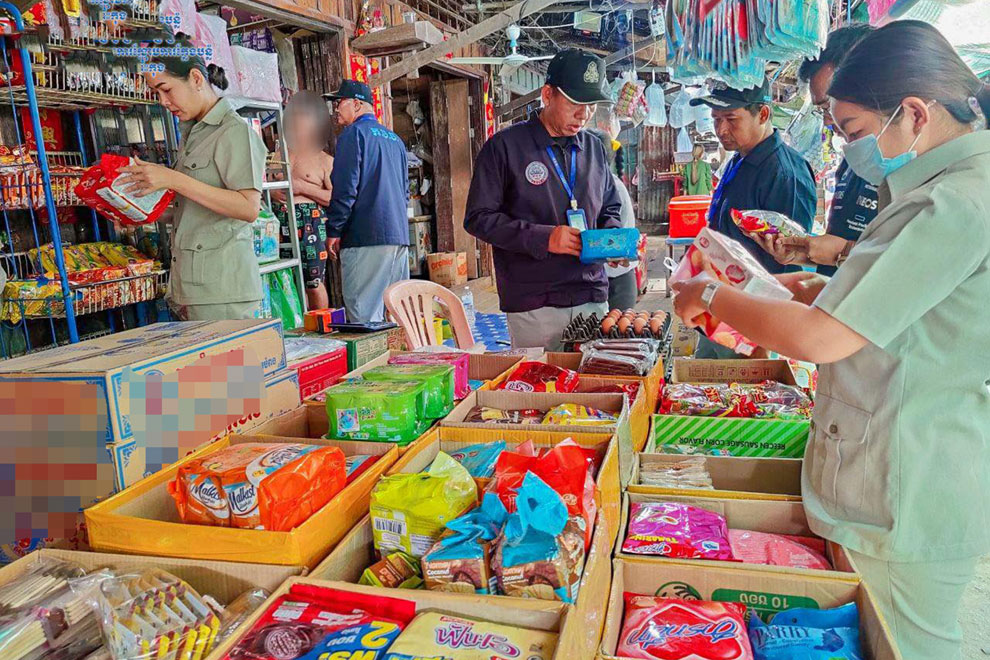
CCF officials check food samples to ensure food safety in Kampong Thom province on January 12. CCF
The Consumer Protection, Competition and Fraud Repression Directorate-General (CCF) has taken more than 2,000 samples of foods from Cambodia’s markets for testing. Some tested samples have already been evaluated as health hazards because of a lack of nutritional content or the presence of banned or dangerous substances.
CCF Director-General Phan Oun told The Post on January 17 that his agency has a laboratory capable of analyzing the parameters of food microbiology as well as doing physical test parameters for ingredients and nutrition, checking for additives and running chemical transfer test parameters and chemical residue checks in food.
He said that their laboratory equipment is capable of analyzing foods, agricultural products, fuel and other consumer products circulating in the Cambodian markets to ensure the safety of consumer products in Cambodia.
“According to the report, we have taken more than 2,000 samples. Most are food samples. We also found some non-compliance, including the evaluation of some products and parameters that we consider to be harmful to health, especially the detection of non-protein foods and some foods that do not contain iodized salt and some that have iodized salt that exceeded the standard,” he said.
Phan Oun claimed that some fish sauces and soy sauce products were also found to contain banned substances that can pose a serious health hazard and this required additional involvement to curb the traffic of these particular brands of sauces in the markets.
CCF has two laboratories – the Central Laboratory and mobile laboratory. The Central Laboratory receives the analysis of samples sent at the request of customers, the market surveyors of the CCF branches as well as for criminal investigations, consumer complaints, market checks, testing for mass food or alcohol poisoning cases and other requests through collaborations.
The mobile laboratory is obliged to inspect the goods in the market with the CCF branch, provinces, capitals in cooperation with the relevant local authorities to investigate cases of food poisoning and take samples as needed, as well as to monitor the compliance with the quantity, quality and retail price of fuel at depots.
The General Department of CCF operates a mobile laboratory for food and fuel.
Phan Oun stated that the laboratory of the General Department of CCF is a technical unit that provides analysis services on the parameters of food products, agricultural products, fuel and other consumer products.
He continued that currently the laboratory of the General Department of CCF has been preparing the necessary technical documents to meet the requirements for accreditation on the conformity of ISO / IEC Guide 17025: “General Requirement for the Competence of Calibration and Testing Laboratories.”
“The laboratory staff of the General Department of CCF is full of knowledge, technical skills and experience, and the unit continues to develop its capacity to ensure the provision of quality and effective public services,” he said.














